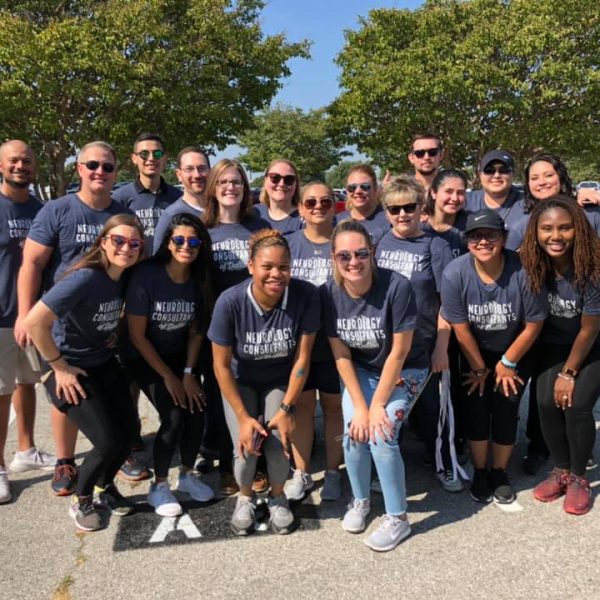About Our Pediatric Neurology Program:
Neurology Consultants of Dallas Pediatric Neurology, under the guidance of Dr. Daniel Gossett, is renowned for our expertise in addressing neurological challenges in children, particularly epilepsy. Our commitment to excellence extends to comprehensive care, encompassing diagnosis, treatment, and research. We specialize in managing a spectrum of pediatric neurological disorders, including epilepsy, developmental delays, migraines, and more. Seamless transition of care from childhood to adulthood is paramount to us. Our collaborative approach between pediatric and adult neurologists ensures continuity and optimal outcomes for our patients and their families. At Neurology Consultants of Dallas Pediatric Neurology, your child’s neurological well-being is our primary focus.

Our Pediatric Team:
What Our Pediatric Program Offers:
• A professional collaboration to enhance your child’s quality of life• Consultation with a fellowship-trained neurologist
• Medication review and management
• Neuro Testing Center onsite for Sleep Studies and EEG testing.
• State of the art technology including MRI (with neuro trained radiology readings)
• Clinical Research providing access to emerging therapies
• PT, OT, and Speech therapy with neuro trained therapists
Seizures: Seizures in children are sudden, abnormal electrical disturbances in the brain that can
cause various symptoms such as uncontrollable jerking or shaking movements, staring spells,
confusion, altered consciousness, repetitive movements like lip smacking or blinking, and
sometimes loss of bladder or bowel control.
• Epilepsy: A neurological disorder characterized by recurrent seizures, which can vary in severity
and frequency.
• ADHD: ADHD, or Attention Deficit Hyperactivity Disorder, is a neurodevelopmental disorder
characterized by persistent patterns of inattention, impulsivity, and/or hyperactivity that
significantly impact a child’s functioning and development. Children with ADHD may have
difficulty staying focused, following instructions, organizing tasks, and controlling their impulses.
This condition can affect academic performance, social interactions, and overall daily
functioning.
• Cerebral Palsy: A group of movement disorders caused by abnormal brain development or
damage, leading to impaired muscle coordination and mobility.
• Migraine and other Headache Disorders: Recurrent headaches often accompanied by sensory
disturbances, nausea, and sensitivity to light or sound.
• Developmental Delay: Delays in achieving developmental milestones in areas such as motor
skills, speech, cognition, or socialization.
• Neurodevelopmental Disorders: Including intellectual disabilities, learning disorders, and
language disorders, which affect cognitive and/or adaptive functioning.
• Tics and Tourette Syndrome: A neurological disorder characterized by involuntary motor and
vocal tics.
• Muscular Dystrophy: A collection of inherited conditions where muscles become weaker and
break down as time goes on. Keep an eye out for signs like trouble walking or standing, frequent
falls, muscle stiffness or pain, larger calf muscles than usual, difficulty breathing, and delays in
your child’s ability to sit or stand on their own.
• Hydrocephalus: A condition characterized by an accumulation of cerebrospinal fluid in the brain,
leading to increased pressure inside the skull and potential damage to brain tissue. In pediatric
patients, symptoms of hydrocephalus may include an enlarged head, bulging fontanelle (soft
spot on the baby’s skull), vomiting, irritability, seizures, poor feeding, developmental delays, and
changes in vision.
A fellowship-trained neurologist is a physician who has completed additional specialized training, known
as a fellowship, in a specific area of neurology following their residency training. Neurology fellowships
typically last one to two years and provide intensive, focused education and clinical experience in a
particular subspecialty within neurology, such as epilepsy, stroke, movement disorders, neuromuscular
disorders, or neurocritical care, among others.
During their fellowship, neurologists receive advanced training in diagnosing, managing, and treating
patients with complex neurological conditions within their chosen subspecialty. They work closely with
experienced faculty members and gain hands-on experience in specialized procedures, advanced
diagnostic techniques, and innovative treatments relevant to their area of focus.
After completing their fellowship, neurologists are considered experts in their subspecialty and are
equipped with the knowledge and skills necessary to provide specialized care to patients with specific
neurological disorders. Fellowship-trained neurologists play a crucial role in delivering high-quality,
specialized care and advancing the field of neurology through research and clinical innovation.
Neurological disorders in children can present with various signs and symptoms, including seizures,
developmental delays, motor coordination difficulties, changes in behavior or mood, headaches, vision
problems, and difficulty with speech or language.
Treatment options for pediatric neurological disorders vary depending on the specific condition but may
include medication management, physical therapy, occupational therapy, speech therapy, dietary
interventions, surgical procedures, and counseling or behavioral therapy.
Our Community & Research

Contact Us
We’re here to answer any questions in order to make your appointment easier.
Find a Specialist
Learn more about our fellowship-trained specialists!
NCD Testing Center
Learn more about the testing available for seizures in our Neuro Testing Center.

